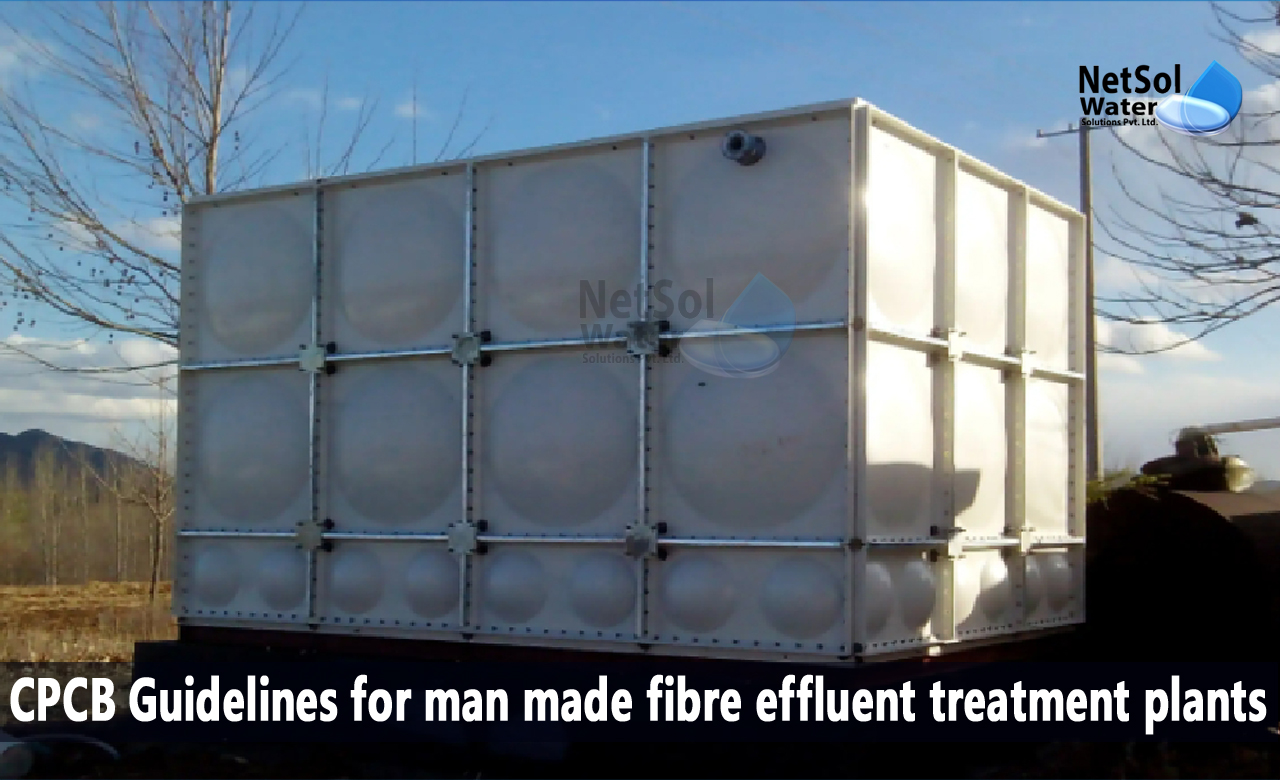If you work in the industrial sector, you must be concerned with wastewater management. With the rapid development of industry, an increasing number of dangerous pollutants/contaminants are discharged into the environment, posing substantial environmental risks, particularly water pollution, which is a major worry.
The synthetic or man-made fiber sector consumes the most water and generates the most wastewater. As a result, it is necessary to control harmful wastewater discharge from the manufactured fiber industry, by establishing effluent treatment plants (ETPs).
What are the CPCB Guidelines for man made fibre ETP Plants?
Manufacturing fibre sectors generates effluents with extremely varied compositions, hence effluent treatment systems are critical. Therefore, an ETP, or Effluent Treatment Plant, is the finest alternative for a safe environment from man-made fiber waste, and it saves money and the environment, while providing excellent treatment efficiency.
CPCB Standard/guidelines for effluent of manmade fibre industry
|
S. No. |
Parameters |
Standards Inland Surface Water |
Land for irrigation |
Marine Discharge |
|
1. |
pH |
6.0-8.5 |
6.0-8.5 |
6.0-8.5 |
|
2. |
TSS |
100 |
100 |
100 |
|
3. |
BOD (3 days at 27o C) |
30 |
100 |
100 |
|
4. |
Zinc in mg/l |
5 |
5 |
15 |
Note: The recovery of Sodium Sulphate shall not be less than 60% in Viscose Staple Fibre, and Viscose Filament Yarn units.
(a) Carbon Disulphide (CS2) and Hydrogen Sulphide (H2S) concentrations in the workplace must not exceed 10 ppm.
(b) The stack height is calculated as H = H Q "I-3 VsDU, where Q is the carbon disulphide emission rate in kg/hr, Vs is the stack exit velocity in m/sec, D is the diameter of the stack in m, and U is the annual average wind speed at the top of the stack in m/sec.
(c) For new plants constructed after December 31, "By December 1998, a minimum of 80% of total emissions must pass through stacks, and the calculated stack height must be less than 30 meters. A minimum height of 30 meters must be given, and if the plant has more than one stack, the following standards must be met:
1) the required height of all stacks shall be used on the maximum emission rate in any of the stacks, i.e. the stacks emitting CS2 emission shall be of the same heights (based on the maximum emission rate);
2) The number of stacks shall not be increased as it was on December 31, 1998, but the industry may reduce the number of stacks.
3) The distance between two nearest stacks should be at least three times the height of the taller stack, in metres; if the distance between two stacks is less, emissions emitted through such two stacks shall be considered as a single point source, and the height of the stacks shall be calculated taking emissions emitted through one stack into account.
4) The industry shall install three air quality monitoring stations on the plant's periphery (within the plant's boundary limits), to monitor concentrations of CS2 in ambient air, and the location of these stations shall be decided in consultation with the concerned State Pollution Control Board, but levels of CS2 and H2S (24-hour daily average), shall not exceed 100 and I50 ug/m3 respectively."
How can we assist?
Netsol Water offers a wide range of sophisticated solutions, such as water softeners, wastewater treatment plants, sewage treatment plants, water treatment plants, RO Plants, as well as effluent treatment plants for synthetic fibre industry.
We also educate our clients on how to avoid water pollution, by employing a long-term approach and cutting-edge wastewater treatment procedures.
Netsol Water is Greater Noida-based leading water & wastewater treatment plant manufacturer. We are industry's most demanding company based on client review and work quality. We are known as best commercial RO plant manufacturers, industrial RO plant manufacturer, sewage treatment plant manufacturer, Water Softener Plant Manufacturers and effluent treatment plant manufacturers. Apart from this 24x7 customer support is our USP. Call on +91-9650608473, or write us at enquiry@netsolwater.com for any support, inquiry or product-purchase related query.



